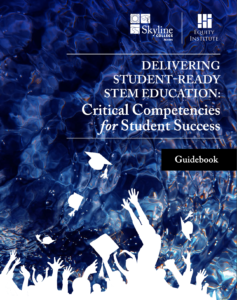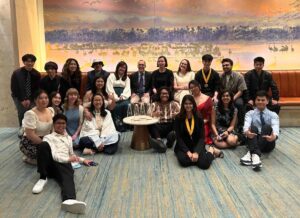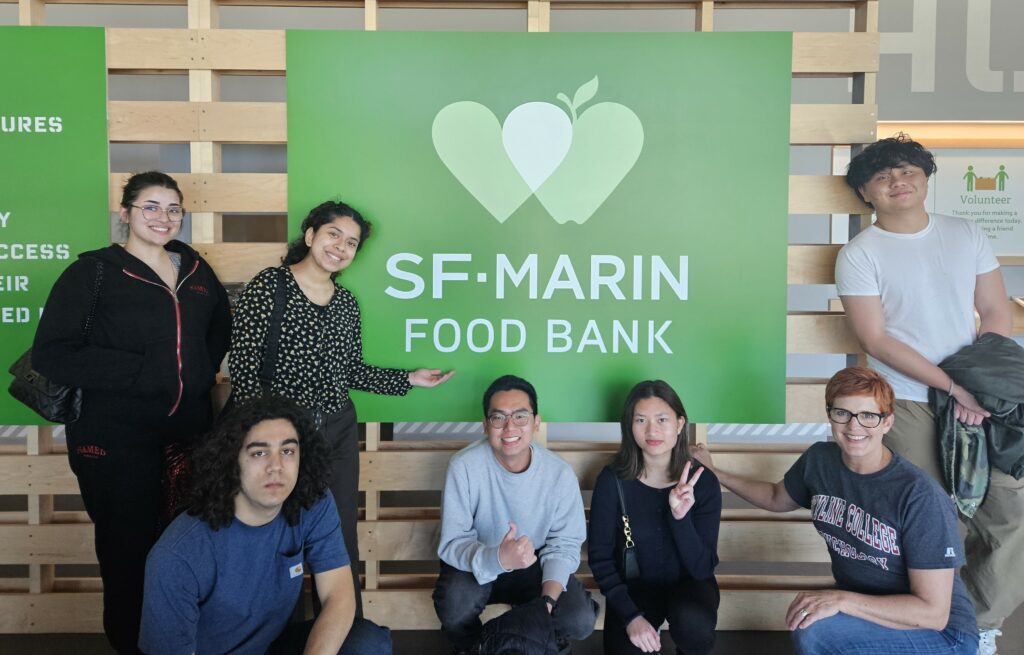 On October 7-8th, the Equity Institute (EI) hosted the fifth equity academy, “Delivering Student-Ready STEM Education: Critical Competencies for Student Success.” This experience brought together teams representing 11 California Community Colleges including, Skyline College, College of San Mateo, West Valley College, College of Alameda, Laney College, Los Rios Community College District, Santa Ana College, Mt. San Antonio College, City College of San Francisco and Butte College. Each team represented a cross-section of STEM classified professionals, faculty members, and administrators who worked collaboratively through a sequence of four interactive sessions.
On October 7-8th, the Equity Institute (EI) hosted the fifth equity academy, “Delivering Student-Ready STEM Education: Critical Competencies for Student Success.” This experience brought together teams representing 11 California Community Colleges including, Skyline College, College of San Mateo, West Valley College, College of Alameda, Laney College, Los Rios Community College District, Santa Ana College, Mt. San Antonio College, City College of San Francisco and Butte College. Each team represented a cross-section of STEM classified professionals, faculty members, and administrators who worked collaboratively through a sequence of four interactive sessions.
Chancellor Michael Claire and President Melissa Moreno welcomed participants and the experience commenced with opening keynote speaker, Sepehr Vakil, Ph.D., Assistant Professor of Learning Sciences at Northwestern University. Dr. Vakil’s message addressed the ethical responsibility educators have to provide opportunities for students to learn and analyze the sociopolitical implications of science and technology. He also articulated the importance of cultivating students’ moral, ethical, and political identities in ways that help them navigate and transform their worlds. The audience engaged through Q&A and were particularly inspired by the notion of sparking excitement and increasing success in STEM by connecting content/material to issues that impact student’s lives and communities. Before releasing teams into their respective breakout sessions, Katrina Pantig presented the EI’s T3 Framework and guiding principles of being Student-Ready, Equity-Minded, and Transformative.
The first full day consisted of the opening keynote, session one, Teaching the Student and the Content (Student Engagement), and session two, Transformative STEM Pedagogies. The following day, participants attended session three, Cultural Competencies for Student Success, a facilitated conversation with equity-minded STEM practitioner, Safiyyah Forbes, session four, Becoming a Transformative STEM Educator (Practical Application), and the closing keynote address. The sessions were led by Skyline College facilitators who engaged participants in activities and discussions anchored by an electronic comprehensive peer-reviewed guidebook. The guidebook also provides participants with supplementary activities, resources, and reference material to utilize for continuing this work at their respective institutions.
The program culminated with a powerful keynote address by Roni Ellington, Ph.D., Assistant Professor of Mathematics Education at Morgan State University. Dr. Ellington’s research includes analyzing the socio-cultural factors that impact student’s success in math and STEM disciplines and developing Transformative Frameworks for STEM education applicable to all STEM disciplines. Her message focused on how educators can be agents of transformation and critical partners in developing students. She challenged the common notion that we need new strategies and shifted the focus to the deep work of critical self-reflection which is the on-going cyclical work necessary to embody our desired goals around equity and social justice.
Eugene Mahmoud, Physics and Engineering faculty at Mt. San Antonio shared, “The academy was a good opportunity to reflect with my colleagues on the work that we do with our student population and as educators. I left with a heightened awareness of how my students’ context informs their ability to access course content, and how their learning experience must address their desire for higher education, career, and the social good.”
Article by Katrina Pantig
Image Design by Mia Coo






